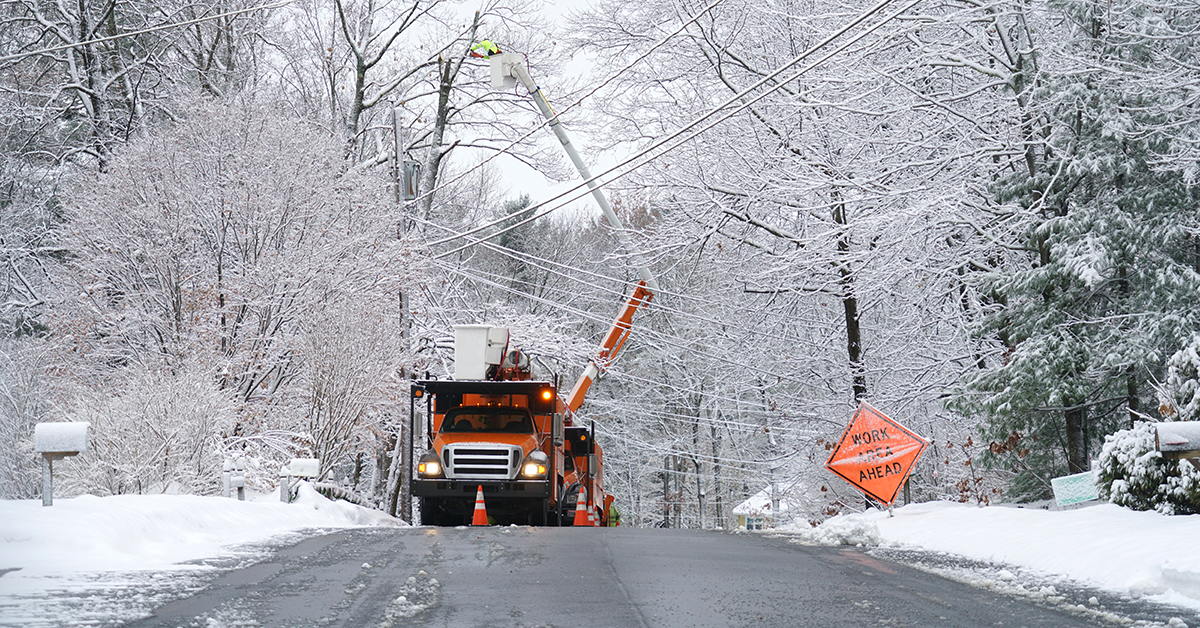
Weathering the Storm – Staying Safe During Ice Storms and Power Outages
As winter approaches, the risk of ice storms and extended power outages increases. These conditions can create significant challenges, from slippery roads to freezing temperatures that disrupt everyday life. Preparing in advance and knowing how to stay safe can help you and your household weather the storm with less stress. Here are some tips to keep you safe.
Prepare an emergency kit
A well-stocked emergency kit can make all the difference when faced with power outages or hazardous winter conditions. According to the American Red Cross, your kit should include:
- Flashlights and extra batteries
- Battery-operated radio for weather updates
- Non-perishable food and water (at least a three-day supply)
- First-aid kit and essential medications
- Warm blankets and extra clothing
- Pet supplies, if applicable
Make sure your kit is easily accessible and regularly updated. Store everything in a waterproof container to protect it from the elements.
Stay informed
Monitor the weather forecast and power company notifications closely. Subscribing to weather alerts and utility updates can help you stay ahead of the storm and plan accordingly. When aware of incoming severe weather, consider charging your devices and stocking up on last-minute essentials.
Protect your pipes from freezing
Freezing temperatures can lead to burst pipes. Here are a few steps to prevent this:
- Insulate exposed pipes in unheated places with foam covers or wrap them in heat tape.
- Drain and shut off outdoor water lines.
- Cover outdoor faucets with insulated covers.
- Know where your main water shut-off valve is in case of a burst pipe emergency.
- Leave cabinet doors under sinks open to allow warm air to circulate around the pipes
- Consider letting faucets drip slightly to keep water moving through the pipes.
Heat your home safely
If the power goes out, it’s essential to use heating alternatives safely:
- Space heaters: Follow manufacturer guidelines, keep them at least three feet from flammable objects, and never leave them unattended.
- Fireplaces: Ensure the damper is open before lighting a fire. If your fireplace is non-functional or boarded, do not try to access or use it. Read this blog post for more about fire safety at home.
- Grills and generators: Never use propane grills, camp stoves, or generators indoors or in a garage, as they can emit deadly carbon monoxide. If you start feeling dizzy, weak, or sick, seek fresh air immediately, as these could be signs of carbon monoxide exposure. For more detailed generator safety tips, visit Ready.gov.
Staying warm when the power is out
When the heat goes out, conserving body warmth becomes a priority. These tips can help you stay comfortable:
- Wear layers of loose, lightweight clothing to trap heat.
- Close off unused rooms to minimize heat loss.
- Use battery-powered flashlights instead of candles to reduce fire risk.
- Close blinds and curtains to retain warmth.
The American Red Cross also offers a useful checklist on what to keep on hand to be safe before, during and after a power outage. If the power is out because of a storm and impacted power lines, remember to never attempt to remove tree branches or repair downed power lines yourself. Call your utility provider immediately for assistance.
Final thoughts
Winter storms and power outages can be stressful, but preparation can significantly reduce the risks. Start by assembling an emergency kit, monitoring weather alerts and practicing safe heating methods. By protecting your pipes and using generators responsibly, you can avoid many common winter hazards.
Planning ahead ensures you can focus on what matters most: keeping your family safe and comfortable until the storm passes. Stay warm, stay informed and stay safe!



